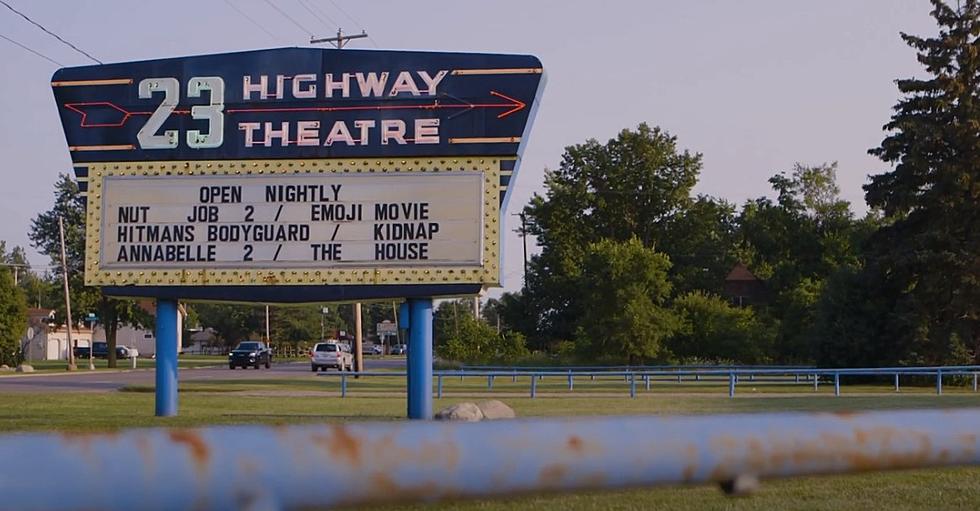
Michigan Man Serving Life Freed Thanks In Part to WMU’s Innocence Project
A wrongfully convicted Michigan man serving life in prison with no chance for parole is now a free man.
At the age of 23, Corey Quentin McCall was sentenced to serve life without parole on December 5, 2005. After spending nearly 16 years behind bars for a crime he did not commit, 39-year-old Corey is having his wrongful conviction vacated and has now been released from the Michigan Reformatory in Ionia.

How He Was Wrongfully Convicted
On March 26, 2005, four armed men broke into a house and killed three people, and shot a surviving victim during a robbery in Benton Harbor. The surviving victim eventually identified McCall as one of the gunmen after seeing his profile during the robbery for 1-2 seconds.
At trial, McCall presented an alibi defense that he was purchasing items at Walmart when the crime occurred. Trial testimony from Walmart employees was that those purchases were not made that night, discrediting McCall’s statements and contradicting his alibi. McCall was ultimately convicted by a jury.
How His Conviction Was Overturned
Decades later, the Western Michigan University Cooley Law School Innocence Project received new information that McCall did not participate in the crime. This new information led to the discovery of new witnesses and new evidence, including documents that were not available at trial, that showed McCall was innocent. The Benton Harbor Department of Public Safety helped to forensically analyze a phone that corroborated the new evidence. The Western Michigan University Cooley Law School Innocence Project did pursue DNA testing, but the crime scene evidence was not material to the identity of the perpetrators.
The Benton Harbor Department of Public Safety, led by Director Daniel McGinnis, Jr., and the Berrien County Prosecutor’s Office collaborated with Western Michigan University Cooley Law School Innocence Project special agents to review the previous investigation and pursue new leads. Director Daniels was the officer in charge at the time of McCall’s arrest and charging in 2005.
Following the investigation, the CIU, led by Assistant Attorney General Robyn Frankel, and Berrien County Prosecutor Steven Pierangeli, moved to have McCall’s convictions vacated and requested dismissal of all charges.
Mr. McCall’s exoneration was made possible by the incredible work of the Attorney General’s Conviction Integrity Unit and the willingness of the Berrien County Prosecutor to vacate his convictions when presented with clear and convincing evidence of his innocence,” Tracey Brame, the director of the Cooley Innocence Project, said. “The Cooley Innocence Project is proud to play a role in this exoneration, and I’m hopeful that this partnership with the CIU will result in justice for others who are wrongfully convicted.
Berrien County Circuit Court Judge Angela M. Pasula set aside the conviction Friday, June 25, 2021, during a hearing held via Zoom.
Berrien County Prosecutor Pierangeli stated,
It goes without saying that it is tragic Mr. McCall has served any time in prison for this crime. Prosecutors in Berrien County make every effort to prevent this from occurring. In this case, Mr. McCall was convicted when the perpetrators of the crime had information of his innocence and waited until recently to disclose it. I fully recognize, however, that setting aside the conviction cannot begin to adequately compensate Mr. McCall for what he has lost. Nothing can restore his lost youth or return to him the years he spent in prison.
In 2019, the Department of the Michigan Attorney General received a grant from the Department of Justice to partner with the Cooley Innocence Project to screen claims of innocence and conduct DNA testing. That same year, the Cooley Innocence Project received a separate grant from the Department of Justice to partner with the Department of the Michigan Attorney General in reviewing cases in which unreliable forensics played a role in the conviction. These grant partnerships were instrumental in McCall's investigation and release.
Exonerated prisoners are eligible for up to a year of reentry housing and two years of other supportive services offered by the MDOC. These include job placement assistance, job training, transportation assistance, work clothing or tools, vital documents assistance, and more.
Exonerees are presented information on these services when they are released and can access them within two years of their release.
LOOK: Route 66’s quirkiest and most wonderful attractions state by state
More From 94.9 WMMQ









